TREATMENTS
See the results of the different NESA® treatments
Chronic Pain Relief: Advances with NESA® Medical Technology
Chronic pain affects 20% of the world's population according to the World Health Organization (WHO). NESA® technology is presented as an advanced solution, using neuromodulation to treat chronic corticalised pain and neuropathic pain by modulating the autonomic nervous system and reorganizing bioelectrical nerve tissue.
Chronic pain, especially neuropathic pain, is associated with dysfunctions in the autonomic nervous system, complicating its management. NESA® technology is presented as an advanced solution, using neuromodulation to treat chronic corticalised pain and neuropathic pain by modulating the autonomic nervous system and reorganizing bioelectrical nerve tissue.
Recent research highlights the importance of the interaction between chronic pain and the autonomic nervous system. A study highlighted by Arslan and Çevik (2022) illustrates how the sympathetic nervous system may play a crucial role in the induction, facilitation, or potentiation of chronic pain, highlighting the modulation of this system as an essential component in pain management.
"The pain penetrated deeply. If I lowered my leg, the pain was intense, always severe. Thanks to my daughter, who brought me here, I underwent 20 days of treatment, and my pain and sleep improved significantly."
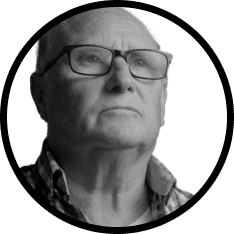
"For me, stopping the anti-inflammatory medication is significant. I can't believe I'm not taking any anti-inflammatory drugs."
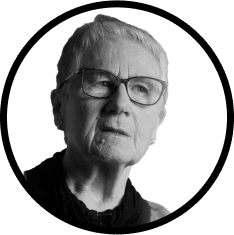
"My daily routine before NESA® involved taking medication at breakfast for headaches, neck pain, etc. I had to take medication throughout the day to function normally. With NESA®, I have regained health and quality of life that I hadn't experienced for years."

"My daily routine before NESA® involved taking medication at breakfast for headaches, neck pain, etc. I had to take medication throughout the day to function normally. With NESA®, I have regained health and quality of life that I hadn't experienced for years."

"Now, as I've improved, I can shave. Before, it was too painful. I couldn't even take a shower because of the pain. Now, I'm practically pain-free. I've noticed significant improvement, which brings me great satisfaction and joy."

"Now I can do things I couldn't before. For example, I can carry a bag, which I couldn't do previously; it would fall off. Keeping my arm in the air was impossible due to cramps and excruciating pain. The improvement is significant."

"Every hair on my head hurt, and movement would cause agony. It took me a long time to recover, but for several months now, I've had a good quality of life. I can live normally, with my challenges, but nothing like before."

"I'm 40 years old and had surgery for an anal fistula. This resulted in pudendal pain that no medical specialty could alleviate. NESA® treatment significantly improved my quality of life."

"I'm 32 years old and have been diagnosed with pudendal neuralgia. NESA® treatment has brought noticeable improvement from the first session. As the weeks passed, my overall life improved, particularly my relationships."

"One of the solutions proposed was using NESA® medical technology, and the improvement has been remarkable. My son, who couldn't move his feet when we started, can now move them and wiggle his toes."

"After many sessions, I started to feel better, especially in terms of energy, improved sleep, mood, calmness, and reduced anxiety. NESA® opened a new world for me, providing hope that allowed me to overcome the challenges I faced. It helped me significantly."

"Not only have I returned to my pre-injury state, but I feel much better because some minor aches and pains have disappeared. On a scale of 0 to 10, I'm at an 11. I feel better than ever."

"When I began treatment, the first thing I noticed was being able to sleep on the side affected by neuralgia. Now, after more than 30 sessions, there are days when I feel no pain at all."
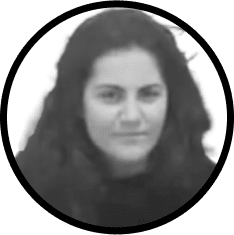
"The turning point with NESA® was that before, I would go to bed and couldn't rest due to pain and nervousness. Since starting NESA® treatment, I go to bed more relaxed, feeling sleepier, and my sleep quality has improved."

"I started noticing pain improvement in the fourth or fifth session. I experienced enhanced relaxation, better coping mechanisms, and overall improvement in my approach to everything. I've resumed my sports routine, playing tennis, and running. I'm happy because the pain was quite debilitating."

Improved physical performance and reduced fatigue
Optimal physical performance and effective fatigue management are crucial for athletes and active individuals, with NESA® medical technology representing an innovative solution that offers an advanced neuromodulation method for these purposes. Fatigue, influenced by factors such as metabolic stress and imbalances in the autonomic nervous system, can significantly impact physical performance. Recent studies have demonstrated that NESA® medical technology enhances physiological recovery in athletes, optimizing their performance throughout the season (Garcia et al., 2022).
Furthermore, the application of NESA® neuromodulation has shown positive effects on sleep quality and recovery processes in young professional basketball players (Medina-Ramirez et al., 2024), which are fundamental aspects for physical performance and fatigue reduction.
The relationship between the autonomic nervous system, fatigue, and physical performance has been explored in several investigations. A pivotal study (Meeusen et al., 2020) discusses how the balance between the sympathetic and parasympathetic divisions of the autonomic nervous system affects resilience and physical performance, highlighting the importance of neuromodulation in optimizing these functions.
"For me, the XSIGNAL® medical device helps me sleep better at night and aids in my body's recovery during the day. I noticed significant improvement, particularly in my knee recovery."

"Since using the NESA XSIGNAL® medical device, I sleep much better and recover from post-match muscle fatigue faster. I also noticed significant improvement with the tear I had, especially during the recovery process."

"I suffered an aneurysm leading to a stroke and coma, leaving me with hemiplegia and chronic fatigue. With the NESA® medical device, I noticed a substantial improvement in my fatigue and began to regain movement in my hand, specifically the thumb of my left hand."

"I suffered an aneurysm leading to a stroke and coma, leaving me with hemiplegia and chronic fatigue. With the NESA® medical device, I noticed a substantial improvement in my fatigue and began to regain movement in my hand, specifically the thumb of my left hand."

"NESA® medical technology was vital during my last injury. Most surprising was the improvement in my rest; I noticed better sleep, reduced body swelling, and enhanced concentration and performance."

"Between sessions, my sleep duration increased from 3-4 hours to 6 hours, even 7 hours on weekends. Thanks to NESA®, I can control stress better and train more effectively, regaining a bit of the life I had years ago."

"When I first used NESA® Medical Technology, I didn't notice immediate effects, but after the third week, I experienced significant changes in my recovery and sleep quality."

"Since using NESA® medical technology, I no longer struggle to fall asleep. My resting heart rate consistently drops by 4 or 5 beats per minute, and my cortisol levels decrease after each use."

"After starting NESA® treatment, I began to see results by the fifth session. The recurrence of my fatigue led us to restart treatment, with noticeable improvement by the third or fourth session. The fatigue was even eliminated, confirming the treatment's effectiveness."

"With NESA®, I rest much better, experiencing uninterrupted 8-hour sleep, a feat I hadn't achieved in a long time. I'm impressed by the improvement in my sleep quality."

"During my cruciate ligament recovery, the quality of my rest was crucial, aided significantly by NESA®."

"After the first five sessions, I began to feel better. My children encourage me not to stop attending sessions, and I feel great. NESA® has improved my well-being significantly."
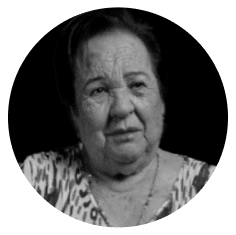
"NESA® significantly improved my cardiac variability and sleep quality data measured by the actigraph. Neuromodulation brought my data back to maximum levels, confirming its effectiveness."

"The fact that I no longer need anti-inflammatory medication is remarkable; I hadn't realized its impact until now."

"From the first sessions, I noticed improved rest; I experienced no pain and the usual morning stiffness disappeared."

Optimising Sleep: Key to Recovery
Sleep is not merely an essential component of daily well-being; it is fundamental in the recovery process of patients. With over 66% of individuals experiencing sleep dysfunctions that directly impact their quality of life (WHO), the significance of sleep in both physical and mental recovery cannot be overstated.
Recent research underscores the crucial role of sleep in various aspects of health, ranging from the function of the glymphatic system in the clearance of beta-amyloid, associated with Alzheimer's disease (Zhao et al., 2022), to its influence on pain perception and postoperative recovery (Butris et al., 2023). Sleep deprivation has not only been associated with an elevated risk of heart attacks but also with slower recovery from lymphopenia and an increased necessity for intensive care among hospitalized patients (Zhang et al., 2020).
NESA® medical technology specializes in modulating the autonomic nervous system, enhancing sleep quality through neuromodulation of the retinohypothalamic pathways involved in the regenerative processes of sleep. This gradual enhancement in sleep quality is pivotal to the patient's comprehensive recovery, supported by cutting-edge science in the realm of sleep and recuperation.
"I lost my fear of getting into bed and facing the night demons because I knew I would fall asleep. It was fantastic. That feeling of sleeping every day for 4 or 5 hours, is that I woke up happy."
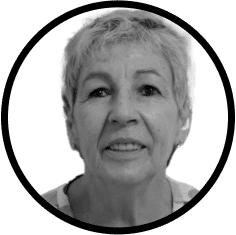
"I use non-invasive neuromodulation to sleep better."

"I was under a lot of stress. I manage many people and barely slept 3 or 4 hours a day. NESA® medical technology is now my ally. I managed to reduce my tachycardia and greatly improve my sleep quality and stress levels. I wake up completely rested."

"I used to go to bed and within an hour and a half I was awake. That was the beginning of my ordeal. After the seventh session of NESA® Non-Invasive Neuromodulation, I slept for 7 hours every day. It is true that some nights I wake up, but I get up, have a glass of water, and go back to sleep."
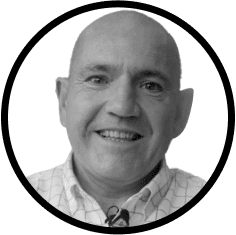
"The truth is that in the first week I didn't notice the change, nor much in the second week, but it was in the third week that I really started to sleep better. I didn't wake up so much in the early hours of the morning."

"One of the things that bothered me the most was the nocturnal activity I had. It gave me the feeling that I was constantly clenching my jaw and doing a lot of muscular exercise. This has not disappeared completely, but it has decreased significantly. I no longer feel that pressure in my jaw at night."

"Already from the first sessions, I noticed significant improvement. My sleep was much more restful. Then other benefits appeared; for example, when it came to training, I felt much stronger."

"After the NESA® Non-Invasive Neuromodulation treatment, I felt a huge sense of relief. Having the peace of mind and the feeling that I get to the end of the day well and that I start with full fuel is a huge satisfaction."
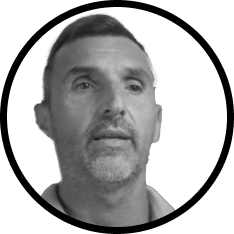
"Since I finished the treatment, about 3 or 4 months ago, I have consistently been sleeping 5-6 hours at a time. I haven't been able to sleep 8 hours at a time, but that's more for personal reasons. Relying on NESA® has been my best decision."

"NESA® improves the rest and performance of athletes, being applied for efficient recovery."

Advanced Anxiety Management
Anxiety and stress, widely recognized as mental health challenges in modern society, affect a significant proportion of the global population. NESA® medical technology emerges as a pioneering solution, offering a novel approach to neuromodulation to combat these prevalent challenges.
Factors such as social environment, nutrition, and poor sleep hygiene are known contributors to the development of stress and anxiety, leading to a progressive deterioration of the nervous system. This phenomenon is reflected in increased cortisol levels and altered beta brain waves, markers of wakefulness and stress, affecting approximately 70% of the world's population, who have experienced periods of sustained stress at some point, while 4% suffer from chronic anxiety disorder according to the WHO (World Health Organization). A recent study reveals that the prevalence of anxiety in the general population during the COVID-19 pandemic was 31.9%, with 29.6% reporting elevated levels of stress (Salari et al., 2020).
A recent study reveals that the prevalence of anxiety in the general population during the COVID-19 pandemic was 31.9%, with 29.6% reporting elevated levels of stress (Salari et al., 2020). These tools are crucial to demonstrate objective changes in the patient's psychosomatic state, with measurement of cortisol levels and cardiac variability recommended for a complete assessment.
"I went from resting for four hours with periods of insomnia to sleeping well. My improvement was significant. I have always had sleep problems since childhood, something I had normalized. However, in the end, if you don't rest, you don't perform as well."

"I am 58 years old and started neuromodulation treatment because I suffered from impotence. In just a few sessions, around 3 or 4, I noticed improvement. After the 10th session, I can now have sex normally. I recommend this treatment because it is painless, relaxing, and, in my case, totally reliable and effective."
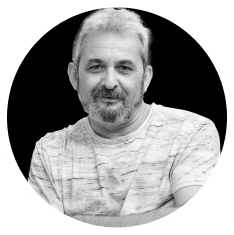
"Previously, I experienced constant dizziness and even fainting. Regaining control over my life is wonderful. Feeling at ease with day-to-day activities like training, working, and shopping; it had affected me in practically everything."

"Previously, I experienced constant dizziness and even fainting. Regaining control over my life is wonderful. Feeling at ease with day-to-day activities like training, working, and shopping; it had affected me in practically everything."

"Since starting the NESA® Non-Invasive Neuromodulation treatment, I have felt significant relief from my anxiety. The sessions have helped me better manage my stress levels and feel calmer in my day-to-day life."

"Now I perform better, and I don't have as many muscle injuries. My mood has improved significantly. We are very happy with the progress we have made."

"With NESA®, I noticed a significant decrease in stress and muscle fatigue. All this is crucial for my training and competitions in the trail running world. I started using this technology because it helped me a lot in marathon preparation and recovery."

"With NESA®, I have achieved physical and mental stability. I am now able to stay focused and motivated at work and more relaxed with my daughters."

"The stress of setting up a company and the day-to-day problems aggravated my condition. I used to sleep for five hours with interruptions. Since learning about NESA® medical technology, I can say that I have improved the quantity of my sleep a little and the quality of my sleep a lot."

Regulation of the Autonomic Nervous System: Key to the Management of Constipation
Constipation, a prevalent gastrointestinal disorder, significantly impacts quality of life. Modulation of the autonomic nervous system emerges as a fundamental approach in the effective treatment of constipation, highlighting the importance of innovative interventions such as NESA® medical technology.
The autonomic nervous system, which regulates involuntary bodily functions including gastrointestinal motility, plays a crucial role in the management of constipation. Dysfunctions in this system may be contributing factors to constipation, making its modulation essential to restore balance and improve bowel function.
The application of non-invasive neuromodulation in children with neurodevelopmental disorders has shown improvements in sleep quality and constipation (Báez-Suárez et al., 2023), indicating that regulation of the autonomic nervous system may have beneficial effects on gastrointestinal motility.
A relevant study by Rao and Welcher et al. (2020) examines how autonomic nervous system dysfunction may influence chronic constipation, suggesting that modulation of this system is key to improving symptoms in affected patients.
"Anxiety significantly affected my digestive system. I had a kind of ball in my stomach which, fortunately, gradually disappeared with the neuromodulation sessions. NESA® has changed my life."

"Before we learned about NESA®, one of the children could go 20 days without a proper bowel movement. This situation caused him a lot of irritability and discomfort. Since we started the neuromodulation treatment, he goes to the toilet every 2 or 3 days. The change has been remarkable. Now he is much less irritable, he doesn't bite or hit himself, and we can work with him on a daily basis."

"Since I started with NESA®, I noticed that I could mentally switch off from work responsibilities and decisions. Before, I was constantly on my toes, which caused me a lot of stress and stomach aches. Now I am better able to detach from those thoughts, which is a total benefit."

"The tools that NESA® is providing us, as physiotherapy professionals, are key; they have a very big impact."

"With NESA®, we have enabled many children to go to the toilet, sleep well, and wake up well in a relaxed way."

"We have been working with NESA® for more than 5 years, and we have seen many improvements in attention, urinary, and sleep."

"The role of NESA® medical technology is fundamental in sleep therapy in cerebral palsy. It can help us to regulate and normalize many factors that we are not able to influence."

"Thanks to NESA® drivers for home use, the son of a patient who had not slept for three years has improved dramatically. This has a direct impact on improving the quality of life of families."

"NESA® medical technology has helped us to reduce inefficiencies and improve our patient protocols."

Management of overactive bladder urinary incontinence: The role of the autonomic nervous system
Urinary incontinence due to an overactive bladder is a condition that significantly affects the quality of life of millions of people, comprising 6% of the world's population according to the WHO. This condition is closely related to the autonomic nervous system. NESA® medical technology emerges as an innovative solution, applying neuromodulation to treat this condition by regulating the autonomic nervous system.
Overactive bladder is characterized by involuntary contractions of the bladder muscle, influenced by dysfunctions in the autonomic nervous system. These dysfunctions can disrupt communication between the brain and the bladder, leading to urinary urgency, frequency, and, in many cases, incontinence.
Research has demonstrated the effectiveness of neuromodulation in the treatment of autonomic nervous system disorders related to overactive bladder. A relevant study by Contreras et al. (2023) showed significant improvements in urinary incontinence symptoms in patients with multiple sclerosis following the application of NESA® neuromodulation, highlighting its therapeutic potential.
Furthermore, studies have shown the effectiveness of NESA® Non-Invasive Neuromodulation in the treatment of autonomic nervous system disorders related to overactive bladder. For example, research by Smith et al. (2023) and Conde et al. (2023), presented at the International Continence Society (ICS) Congress, emphasizes the relationship between overactive bladder and the autonomic nervous system. It underscores how autonomic dysfunctions may influence this condition and its treatment.
"After undergoing an oncological process, I began experiencing sphincter dyscontrol. I underwent pelvic physiotherapy treatment to recover from it. This treatment, integrating NESA® medical technology, was crucial in dealing with this complication."

"When we began using neuromodulation as a standalone treatment for my overactive bladder, I noticed a significant decrease in my need to go to the toilet. This improvement started from the 4th or 5th session onwards."

"Before using the NESA XSIGNAL® medical device, I would get up 10 to 12 times during the night to go to the bathroom. After 6 sessions, that frequency dropped to 2 or 3. Being able to rest and have a minimum quality of sleep has changed my life."

"I have undergone 6 incontinence operations, several hip operations, and another one due to a heart attack. I have been treating myself with the XSIGNAL® medical device for 2 years, and I have already recommended the treatment to many people."
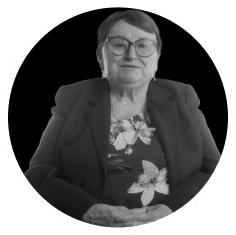
"The fact that I no longer need anti-inflammatory medication is remarkable; I hadn't realized its impact until now."
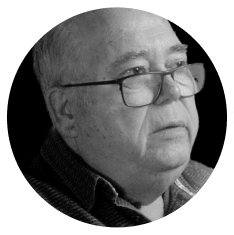
"I am 65 years old and had been unable to rest properly for a long time because of my overactive bladder. With the neuromodulation treatment, I am more than grateful. After the fourth session, I started to improve, and now I can sleep most of the night. I feel much more rested and can lead a normal life."

Are you a healthcare professional?
Request a personalized DEMO
NESA® Non-Invasive Neuromodulation is an effective treatment to improve ailments in which the autonomic nervous system plays a fundamental role.
Request a personalized demonstration
Do you have any additional clinical questions
regarding NESA® treatments?
We address various inquiries, including technical, scientific, clinical, physiological, patient-oriented, training, commercial, and expansion-related aspects. You can simplify your search by using specific keywords. Simplify your search by using keywords
NESA® Microcurrents
Explore the mechanisms of action of NESA® Non-Invasive Neuromodulation.
Contact
We are committed to transparency and integrity in all our interactions. So, if you have any additional questions, you can contact our Customer Service team by completing the following form. We will answer you as soon as possible.
Thank you for your interest!